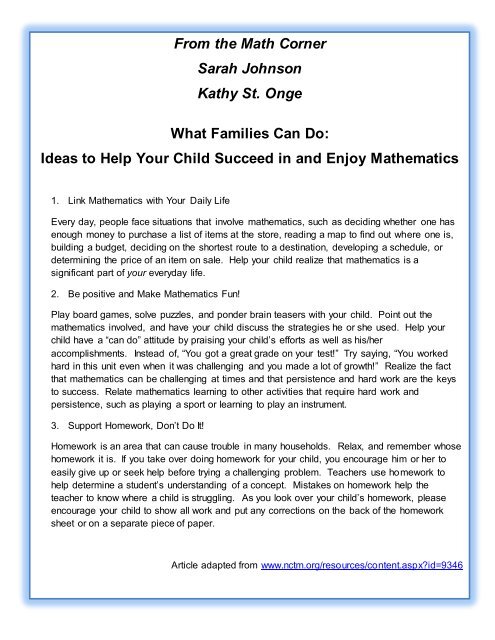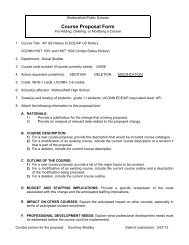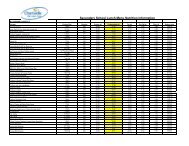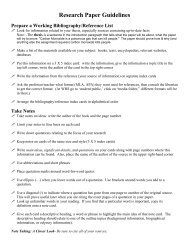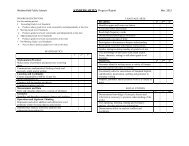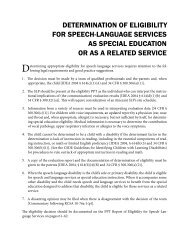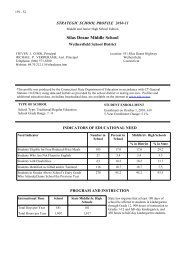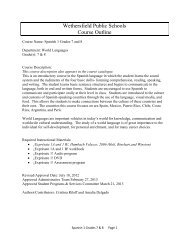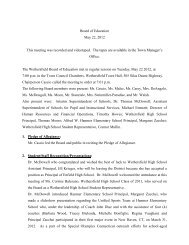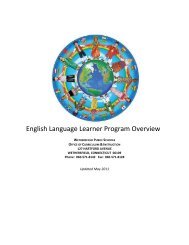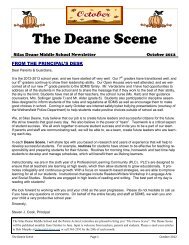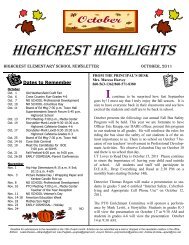October 2012 - Wethersfield High School
October 2012 - Wethersfield High School
October 2012 - Wethersfield High School
Create successful ePaper yourself
Turn your PDF publications into a flip-book with our unique Google optimized e-Paper software.
From the Math Corner<br />
Sarah Johnson<br />
Kathy St. Onge<br />
What Families Can Do:<br />
Ideas to Help Your Child Succeed in and Enjoy Mathematics<br />
1. Link Mathematics with Your Daily Life<br />
Every day, people face situations that involve mathematics, such as deciding whether one has<br />
enough money to purchase a list of items at the store, reading a map to find out where one is,<br />
building a budget, deciding on the shortest route to a destination, developing a schedule, or<br />
determining the price of an item on sale. Help your child realize that mathematics is a<br />
significant part of your everyday life.<br />
2. Be positive and Make Mathematics Fun!<br />
Play board games, solve puzzles, and ponder brain teasers with your child. Point out the<br />
mathematics involved, and have your child discuss the strategies he or she used. Help your<br />
child have a “can do” attitude by praising your child’s efforts as well as his/her<br />
accomplishments. Instead of, “You got a great grade on your test!” Try saying, “You worked<br />
hard in this unit even when it was challenging and you made a lot of growth!” Realize the fact<br />
that mathematics can be challenging at times and that persistence and hard work are the keys<br />
to success. Relate mathematics learning to other activities that require hard work and<br />
persistence, such as playing a sport or learning to play an instrument.<br />
3. Support Homework, Don’t Do It!<br />
Homework is an area that can cause trouble in many households. Relax, and remember whose<br />
homework it is. If you take over doing homework for your child, you encourage him or her to<br />
easily give up or seek help before trying a challenging problem. Teachers use homework to<br />
help determine a student’s understanding of a concept. Mistakes on homework help the<br />
teacher to know where a child is struggling. As you look over your child’s homework, please<br />
encourage your child to show all work and put any corrections on the back of the homework<br />
sheet or on a separate piece of paper.<br />
Article adapted from www.nctm.org/resources/content.aspx?id=9346


